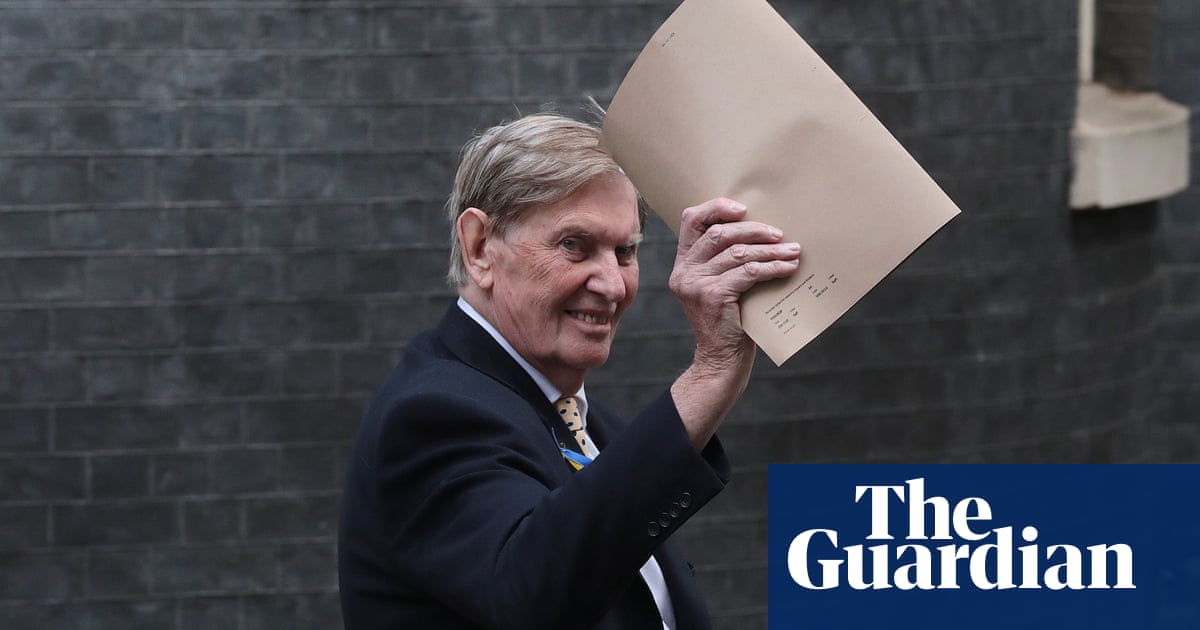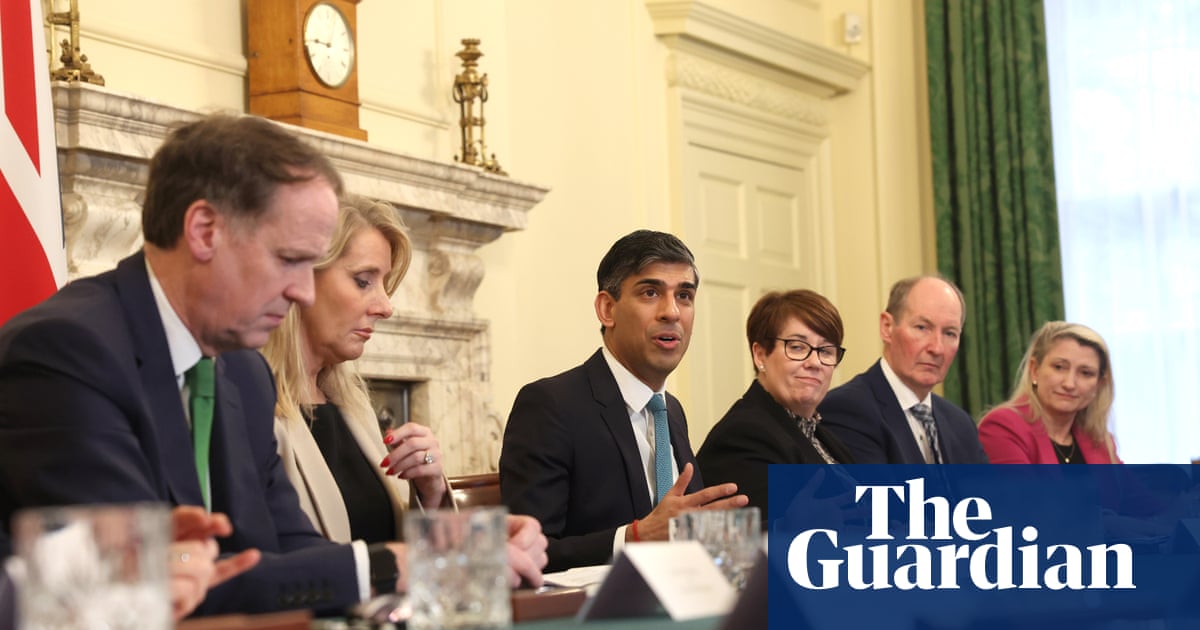
The Conservative party will lose almost 1,000 years of Commons experience just from MPs who have already announced they are standing down, a Guardian analysis has shown, amid an exodus likely to be even greater than in 1997.
So far, 66 MPs elected as Conservatives in 2019 have announced they will not stand again – this includes four who have since lost the whip and sit as independents – which is close to one in five of the total.
In 1997, the last time the Conservatives faced a likely wipeout after many years in power, 72 Tories stood down, a total expected to be exceeded especially if, as many predict, Rishi Sunak delays an election until the autumn.
The 66 standing down have a combined 987 years of parliamentary experience. Their departure, coupled with the expected defeat of many dozens more longstanding Tories, could represent an unprecedented loss of institutional memory for the party.
This averages at just under 15 years per MP, with the longest stint being Bill Cash, who was first elected in Stafford in 1984, shifting to the adjoining Staffordshire seat of Stone in 1997.
Notably, however, of the 66 Tories, nine are stepping down after just one term. Three more entered parliament in 2017 and eight in 2015, meaning almost a third of those quitting have been MPs for less than a decade.
A parallel analysis of Labour MPs who have said they are leaving shows that these are disproportionately older MPs who have served for many years – the longest being Margaret Beckett, first elected in the 1974 general election.
Beckett, later foreign secretary and, briefly, the interim Labour leader, lost her Lincoln seat in 1979, returning in 1983 in Derby South.
This means that another Labour departee, Harriet Harman, who also served as interim party leader among a string of top posts, is “mother of the house” as the longest continuously serving female MP, having arrived in the Commons in a byelection in 1982.
Just 18 MPs elected for Labour in 2019 have so far said they are quitting, but with an average tenure of 23.5 years this totals 424 years of Commons experience.
This sort of pattern in which long-serving MPs from a governing party decided to quit before a probable general election losswas not unusual, said Tim Bale, a professor of politics at Queen Mary University of London, and was seen in 1997 and, to a lesser extent, with Labour MPs in 2010.
One of the triggers appears to be the expectation among many Tories that it will take more than one election for the party to win again, said Bale, who is a historian of the Conservative party.
“If you look at the way that politics has changed over the last few decades, we have far less alternation than we did,” he said. “We seem now to have a system which puts one party in power for 10 years-plus, and then the other party in power for 10 years-plus or even more than that.
“So perhaps in the 1960s and 70s, many MPs might have assumed they’d be in opposition, say, for five years. Now you’ll be lucky to get back into government within 10 to 15 years.”
Historically, Bale noted, parties tended to survive such mass clear-outs as the bulk of the new MPs are people with direct experience of politics, for example on councils, or even in Westminster as aides.
However, there was one lesson that parties on the receiving end of a mass changeover should bear in mind: how to learn from the defeat, something neither the Conservatives or Labour did especially quickly after 1997 and 2010.
“What can happen is that because MPs survive, they have a degree of survivor’s bias, which means that they don’t quite appreciate how bad the situation is,” Bale said.
“They think, rightly or wrongly, that somehow they’re special, or they’ve done something different to their colleagues, and therefore perhaps they have a better idea about what to do next.
“Whereas actually, if the party wants to know what it should do next, it’s probably better off asking those people who lost seats. It can reinforce stasis, in a way, and that’s what happened with the Conservatives after 1997, at least to a degree.”












